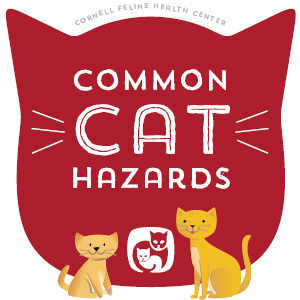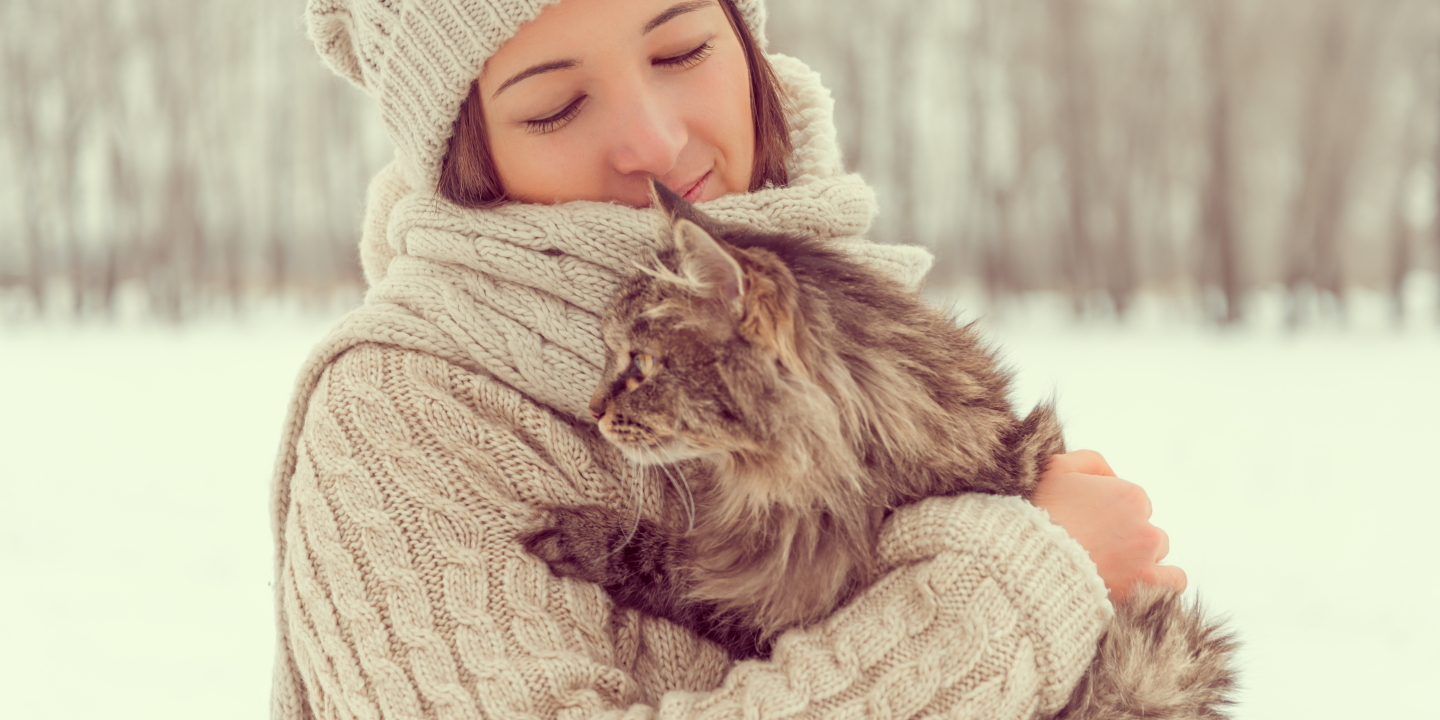Common Cat Hazards
Whether lazing on a cozy couch, stretching out in a spot in the sun, or exploring the dark corners of your closet, you cat feels safe in your home. But every household has substances that can pose a hazard to your cat if he's exposed to them. Learn about some of the common hazards around your home and ways you can protect your feline friends from harm.
What should I do if I think my cat has ingested something toxic?
Call your veterinarian immediately. If your vet is not available, try a local emergency veterinary clinic or animal poison control help hotline (see right).
If you are aware of the toxin that your cat was exposed to, obtain a sample or a label to bring to the veterinarian or to provide information to a help hotline.
IMPORTANT: DO NOT induce vomiting unless you are specifically directed to do so. Certain poisons can cause more damage during vomiting than if left in the stomach.
Signs of Poisoning
- Vomiting
- Diarrhea
- Seizures
- Blood in the stool/urine
- Lethargy
- Loss of appetite
- Bruising
- Nosebleeds
- Irregular heartbeat
- Inability to urinate
- Difficulty breathing
How quickly will my cat become ill?
This depends upon the toxin involved. By the time an owner recognizes a problem, a cat may be at significant risk for serious health problems. For this reason, a prompt veterinary consultation is essential.
Common Household Hazards
Plants
Indoor and outdoor plants can pose a risk to your cat. Ingesting just a small piece of some common ornamental plants such as poinsettias could be enough to make a cat ill, and swallowing a sizable amount could prove fatal. Lilies are especially toxic to cats; they can cause life-threatening kidney failure if ingested even in tiny amounts. Plants that are toxic for cats include (but are not limited to):
- Poinsettias
- Lilies
- Mistletoe
- Holly
- Tulips
- Foxgloves
- Philodendrons
- Amaryllises
- Baby’s Breath
- Sweet William
- Hydrangeas
Medications
Human medications and flea treatments for dogs can be acutely toxic for cats. Remember: never give your cat medications without first consulting your veterinarian. Cats will often gobble up pills they find lying on tables or dropped on the floor, so be vigilant with your medications. Some common causes of poisoning include:
- Aspirin
- Acetaminophen (Tylenol®)
- Ibuprofen
- Dietary supplements (vitamins)
- Flea medication for dogs (Cats must not be allowed to come in contact with a treated dog for 24 hours.)
Household chemicals
Many of the chemicals around your house can present a hazard for your feline friends. Keep these materials in a place your cats can’t reach, and ensure any spills are cleaned up promptly. If you have an outdoor cat, take precautions when using these products in your yard.
- Pesticides
- Insecticides and Rodenticides
- Insecticides and Rodenticides
- Garden products
- Fertilizers
- Weed killers
- Molluscicides (snail baits and snail pellets)
- Miscellaneous products
- Ethylene glycol antifreeze
- Paint thinner
- Swimming pool chemicals
- Household cleaners (including bleach, detergents, and disinfectants)
Toxic Foods
It’s tempting to give your beloved cat a treat of human food, but many of the things we enjoy are off-limits for our feline friends. These foods include (but are not limited to):
- Grapes
- Onions
- Raisins
- Avocados
- Anything containing xylitol, an artificial sweetener
- Chocolate





